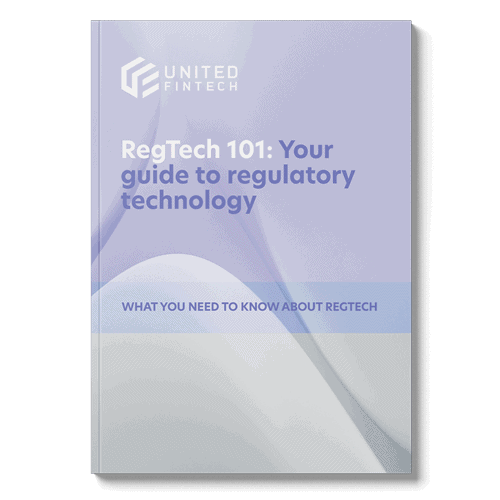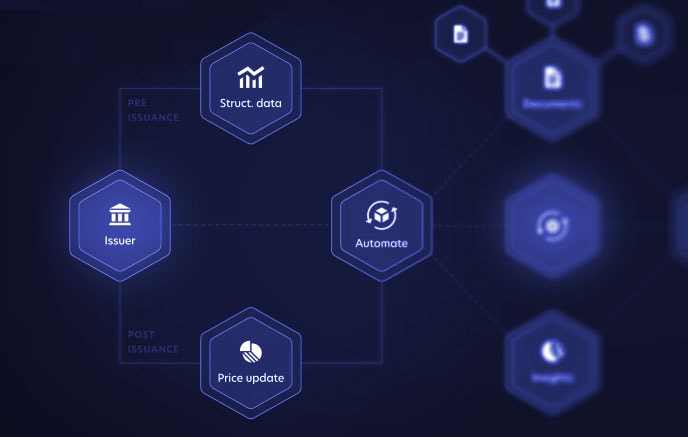Companies
Products
Fair Value Pricing
Independent fair value pricing for added transparency where current prices are not readily available
The right data and tools for your trading and investment needs
One connection to global, multi-asset analytics, news and insights
Flexible solutions, comprehensive market data and services
Innovative, efficient, buy-side workflow automation solutions
All the data required for reporting and enhanced compliance
Digital solutions for a premium client experience
Enterprise-wide digitalization through a single platform
One platform, end-to-end digital transformation
Keep pace with technology, exceed customer expectations
Monitor, measure and maximize value
Quality, multi-asset data and analytics from a single vendor
'One stop' smart access to global trading and market data
Following the financial crisis of 2008, the banking sector and the broader financial services industry have come under increased scrutiny. They had to regain the public’s trust and learn to comply with ever-stricter regulations.
With the advent of new digital technologies, today’s financial institutions also have to contend with cyber security threats, data breaches, and emerging forms of Internet fraud.
Meeting regulatory requirements is a complex and costly challenge. And that’s exactly where regulatory technology - or RegTech - comes into the picture.

Put simply, regulatory technology is an umbrella term for a broad range of software and digital tools that help financial institutions comply with regulatory demands. Different fintech companies offer regulatory compliance solutions to address the varying needs of banks and other industry players.
Leaning heavily on big data and machine learning, this tech area aims to dramatically improve the effectiveness of financial institutions’ internal monitoring, compliance, and reporting processes.
The banking collapse of 2008 triggered an unprecedented shift from an era of under-regulation to one of sweeping regulatory interventions, most notably the Dodd-Frank Act. Financial institutions scrambled to implement internal processes and train their staff to live up to the mounting regulatory pressures.
In parallel, the early 2010s saw an explosive rise in AI capabilities, with deep learning and neural network technologies rapidly improving. Compliance solutions emerged at this intersection of regulatory complexity and the promise of effective process automation offered by AI.
Rather quickly, the regulatory area went from a hodgepodge set of niche tools to an integral part of financial institutions’ regulatory compliance and fraud monitoring processes.
As regulatory technology continues to mature and become ever-more widespread, it’s expected to expand even further into areas of financial fraud monitoring, customer evaluation, and prevention of cyber threats.

While there’s no definitive consensus on how best to group regulatory monitoring solutions, PlanetCompliance.com splits them into the following eight categories:
1. Client identification
This set of regulation solutions helps financial companies gather and process information on prospective and current customers. This includes background checks like Know Your Customer (KYC) and Anti-Money Laundering (AML).
2. Monitoring
This subset of regulatory technology focuses on monitoring ongoing transactions to identify whether they breach regulations or display signs of suspicious activity.
3. Reporting
This category helps companies fulfill their regulatory reporting obligations. This includes collecting, processing, and submitting internal data to the relevant authorities.
4. Data protection
These compliance tools protect personal data in compliance with regulations like the GDPR and offer a more general protection from data breaches and cybersecurity threats.
5. Data warehousing and analytics
This regulatory technology helps companies properly store, sort, and analyze vast quantities of data required for legal compliance.
6. Legal and regulatory analysis
This refers to technology that monitors and interprets any existing and emerging regulations to help financial institutions identify gaps or areas of non-compliance in their internal setup.
7. Training
This set of tools is designed to help financial companies educate and train their staff regarding laws and policies that relate to their work functions..
8. General compliance
This catch-all category covers all regulation tech that doesn’t fall neatly into any of the above definitions. It includes areas like forecasting and risk modeling.
The key takeaway here is that no single RegTech tool can cover the entire spectrum of compliance needs. Instead, financial companies typically pick several solutions to assemble a toolkit that covers their specific organizational needs.
Because of its ability to process huge volumes of data quickly and accurately, regulation and compliance technology offer companies a number of clear benefits.
In many ways, banks and financial institutions are the backbone of the modern economy. They provide loans, process transactions, insure valuable assets, and offer a whole range of other financial services.
At the same time, they are under increasing pressure to comply with regulations, protect sensitive data, and prevent fraudulent activity. In practice, it’s virtually impossible for financial companies to comply with existing regulatory demands without the use of some form of automation.
Seen in this light, RegTech isn’t just a fancy tool but a vital necessity. These solutions let companies operate in compliance with the law, avoid costly errors, and streamline internal processes. All while helping them save costs and stay responsive and flexible.
Cyber security threats, fraud, and regulatory complexity aren’t going away. In fact, they’re only likely to grow in the future.
As such, for a modern financial institution, RegTech is a must-have.

TTMzero: Automated solutions for capital markets
One of United Fintech's portfolio companies, TTMzero, is a RegTech company that assists financial players with pre and post-trade digitization to maximize capital efficiency and mitigate operational risk. TTMzero's goal is to improve quality and increase satisfaction among their customers, which include some of the world's leading investment banks and asset managers.
To learn more about TTMzero's RegTech solutions, click on the products below:

Products
FIAP
Digitize your issuance processes with TTMzero’s Financial Instruments Automation Platform (FIAP) to allow for a fast market launch of new products and ensure straight-through workflows. Also includes PRIIPs for KIDs.
Explore product
Shape the digital future for financial institutions
together with United Fintech and our partner companies.

